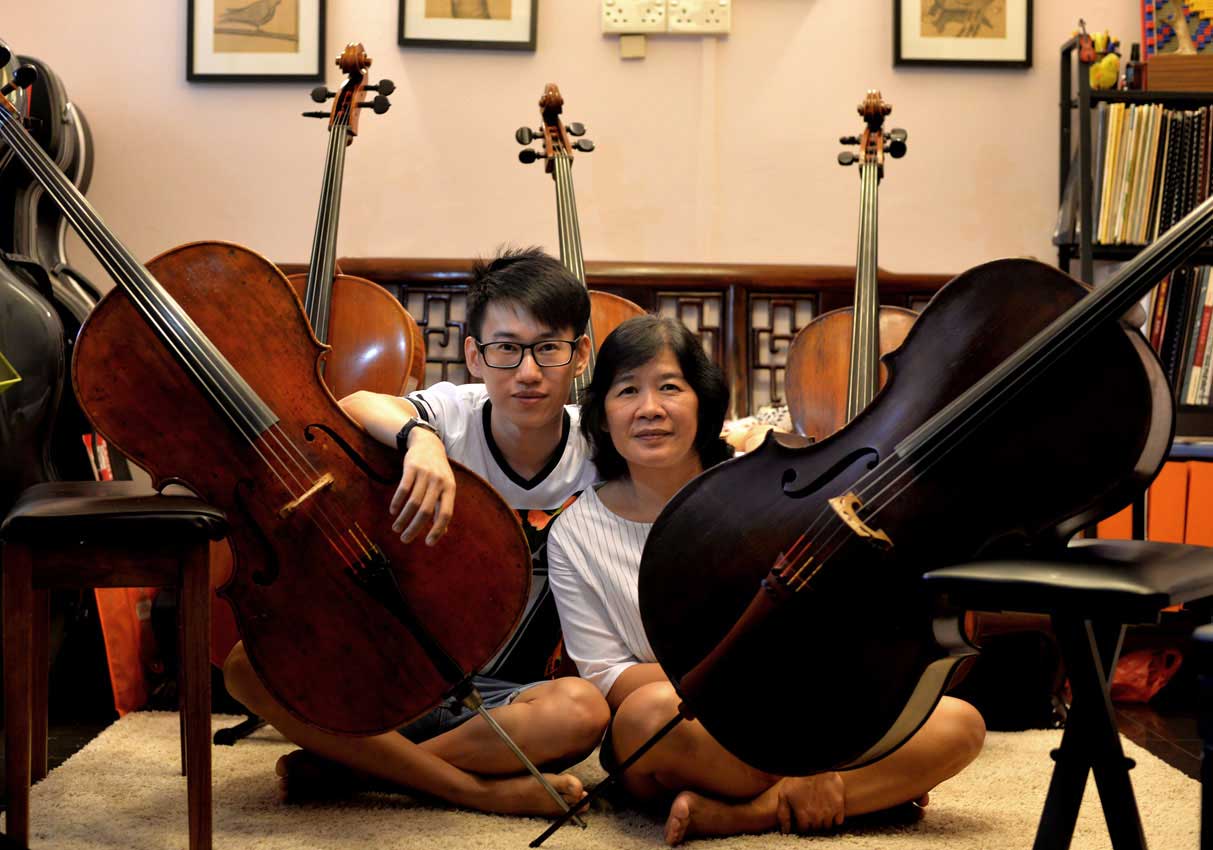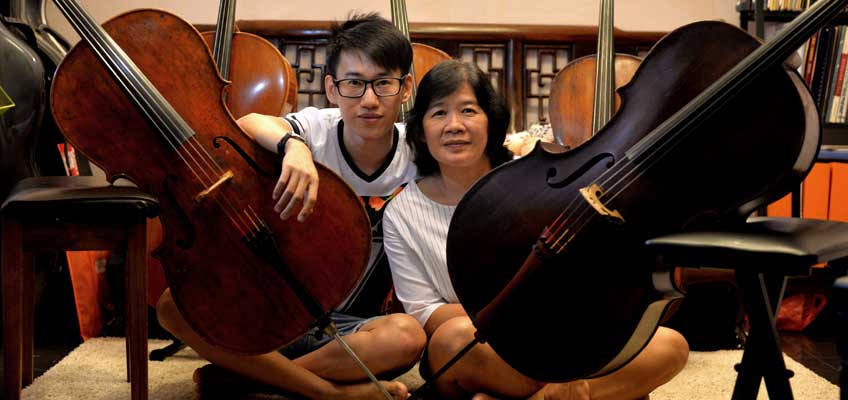When Mr Hughes Chong’s mother had a stroke two years ago and went into a coma, the doctors said there was a high chance she would remain in the vegetative state.
Mr Chong, a cello instructor, read that music could help coma patients, so he tried it on Madam Jazz Wong and saw her fingers twitching.
He recorded her favourite tunes for her as she lay in the intensive care unit of the National University Hospital (NUH).
Two weeks later, she came out of her coma and as she recovered, Mr Chong would play the cello for her when he visited.
Mr Chong, 28, who has been playing the cello since he was seven, told The New Paper: “I would play her favourite tunes, like Summertime by (George) Gershwin and told her she had to get better and play it herself.”
Although she did not recognise the cello, she found it familiar and remembered the proper posture and way to hold it.
Madam Wong, 53, a housewife, had been inspired to pick up the cello after attending her son’s performance in December 2012.
The widow did well enough to perform the following year and will take the stage again later this month in a concert, Cellography Orchestra 2016, organised by her son.
She said: “I was intrigued by the sound the cello produces. You get a variation of sounds from different people playing the cello.
“It is also a challenging instrument so I thought mastering it would be useful for keeping dementia at bay.”
Getting better was an uphill struggle. Madam Wong’s memory was so poor, she would forget details within minutes.
She also forgot how to read music.
After she was discharged, she dedicated her time to interpreting scores and shifting – changing the position of her hand – at a normal speed, as her motor movements were slower.
She said: “My scores are filled with reminders and notes to help trigger my memory, but I would forget everything I learnt on the same day.”
Mr Chong said with a laugh: “It was very frustrating for her and she cried a lot. But her short-term memory also meant she would forget about the sadness quickly.”
He added that the cello definitely improved her coordination and made her sharper.
She practised the cello for more than three hours daily and was further motivated when her physiotherapist told her to never stop playing.
Madam Wong has almost made a full recovery, apart from minor vision problems and the occasional delayed movement.
She is now preparing for her second performance with the cello orchestra, which is made up of 38 of Mr Chong’s students.
DEVASTATED
Said Mr Chong: “She was devastated when she couldn’t perform last year and made it a must for herself to join this year.
“She is practising a lot more than my students since she has to keep up. It is definitely a challenge for her.”
Madam Wong is determined to do her best.
She said: “I am really stressed and nervous as I do not wish to drag down the entire performance with my slower motor skills. I am practising very hard and looking through the scores non-stop.”
She added: “Music has been really therapeutic and instrumental to my recovery. I was able to improve my memory a lot just by memorising the scores.
“I would definitely encourage other stroke patients to give music a try.”

This article was first published on June 11, 2016.
Get The New Paper for more stories.







